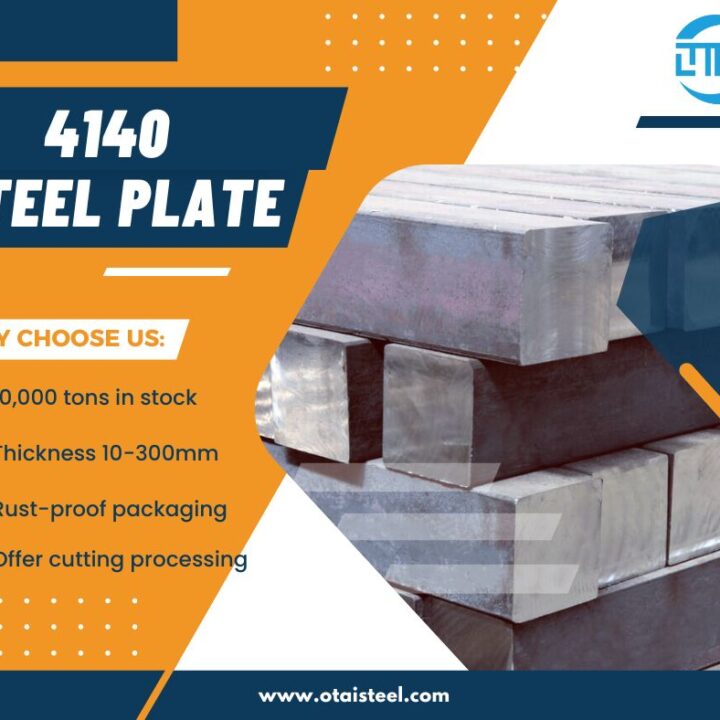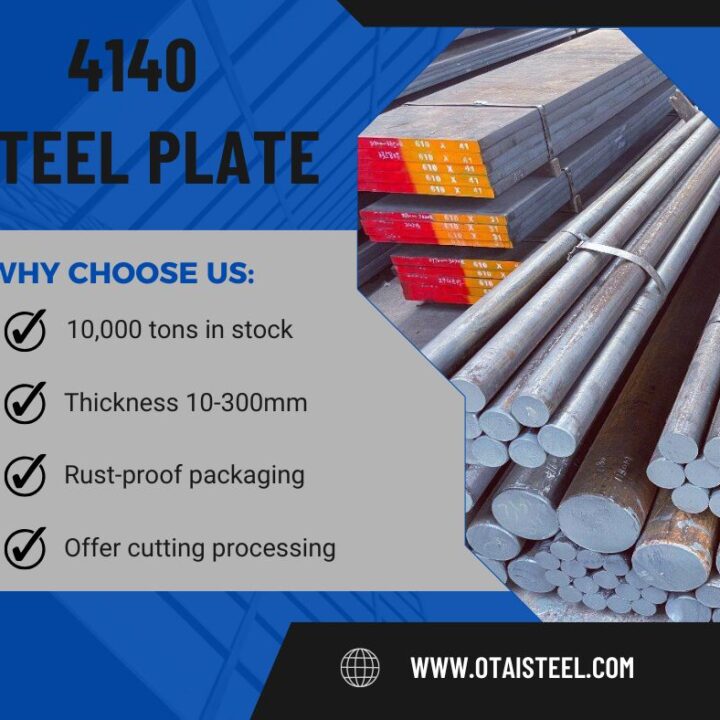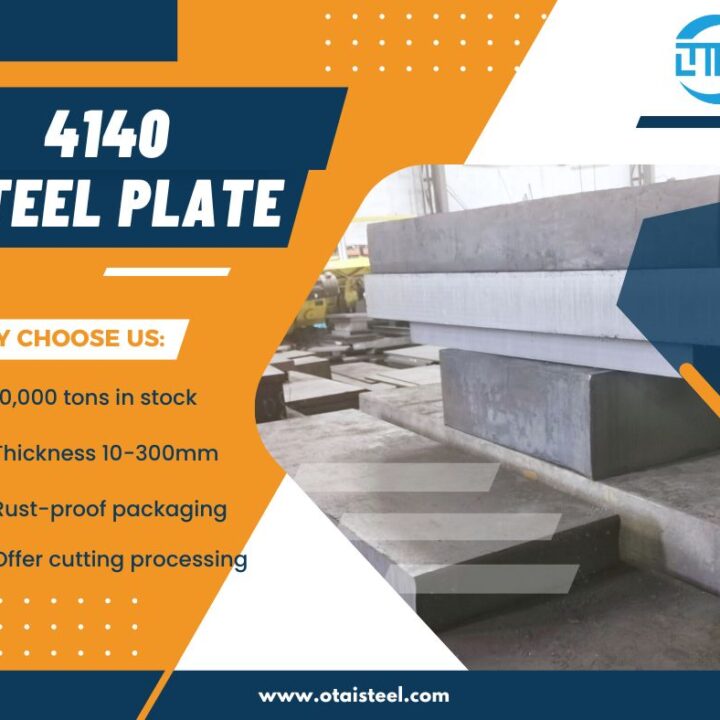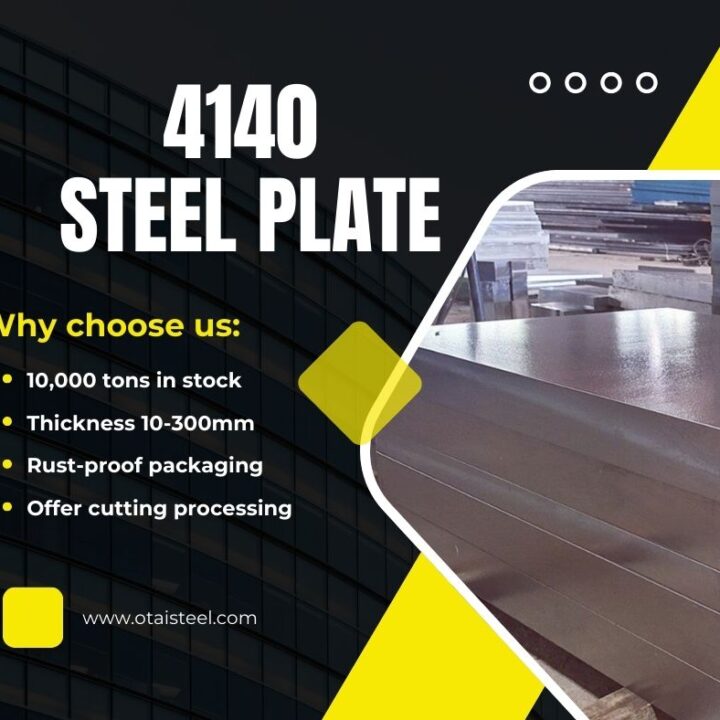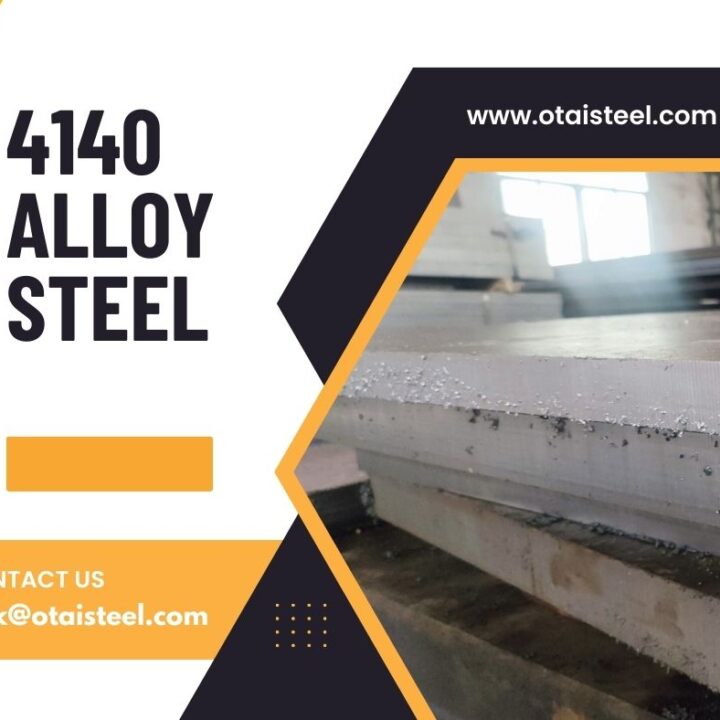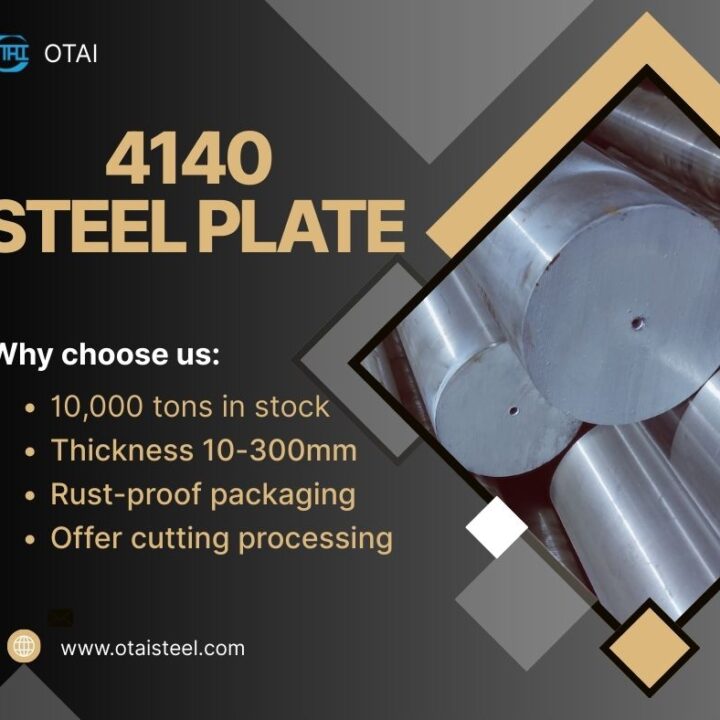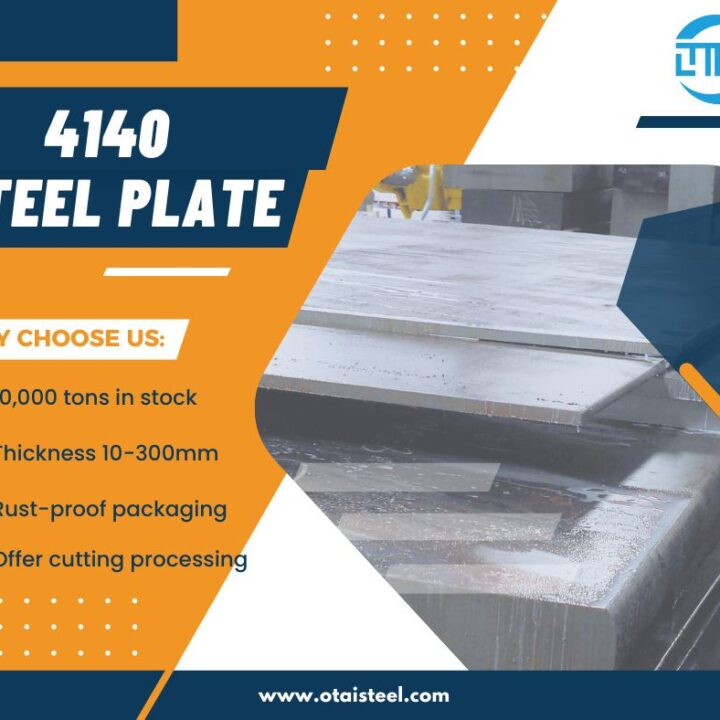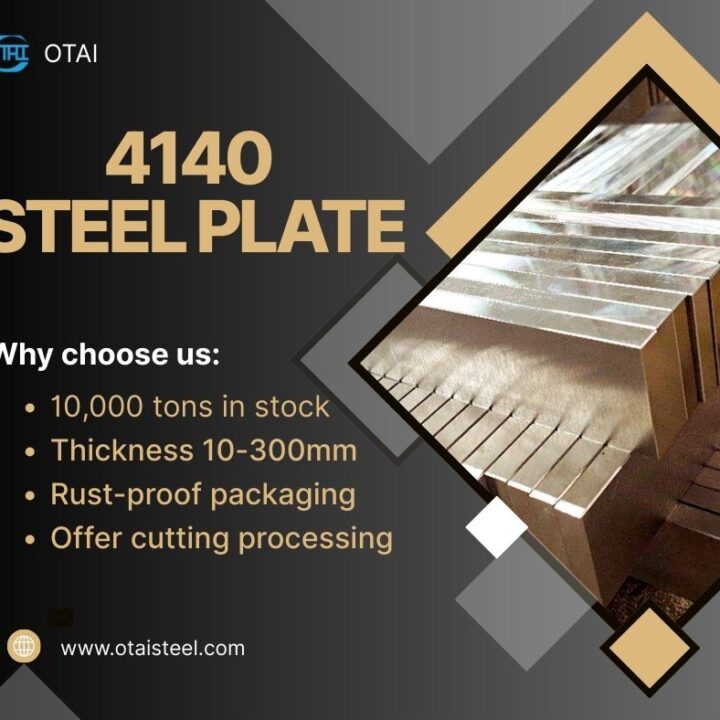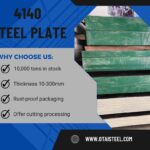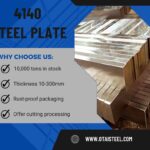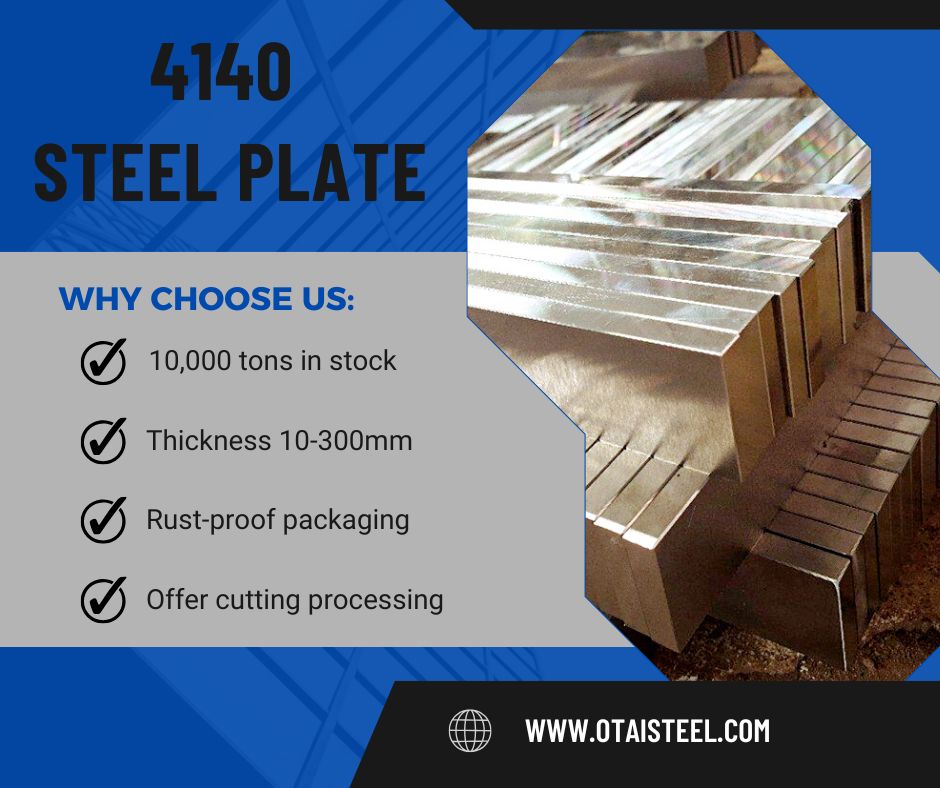 4140 Steel Rectangular Bar – Properties and Applications
4140 Steel Rectangular Bar – Properties and Applications
When engineers or buyers are searching for 4140 steel rectangular bar, they are usually looking for a material that offers high strength, wear resistance, and excellent toughness. This alloy steel is widely used in industries such as automotive, oil & gas, construction, and machinery manufacturing because of its versatile mechanical properties.
In this article, we’ll dive deep into the mechanical properties of 4140 steel rectangular bar, its chemical composition, key applications, machinability, heat treatment response, and why it’s considered one of the most reliable alloy steels for high-performance components.
✨ What is a 4140 Steel Rectangular Bar?
A 4140 steel rectangular bar delivers the strength and stability structural and machine components need when flat surfaces, rigidity, and easy fabrication matter. Chromium and molybdenum alloy the steel, giving the bar its signature toughness. Producers typically supply the bar in any condition a customer specifies—annealed, normalized, quenched, or tempered. Engineers choose the rectangular form whenever they must machine, cut, or weld the piece before putting it to work.
🔬 Chemical Composition of 4140 Rectangular Bar
The chemical composition of 4140 alloy steel is what gives it a balance of hardness, ductility, and wear resistance.
| Element | Percentage (%) |
|---|---|
| Carbon (C) | 0.38 – 0.43 |
| Chromium (Cr) | 0.80 – 1.10 |
| Molybdenum (Mo) | 0.15 – 0.25 |
| Manganese (Mn) | 0.75 – 1.00 |
| Silicon (Si) | 0.15 – 0.35 |
| Sulfur (S) | ≤ 0.04 |
| Phosphorus (P) | ≤ 0.035 |
This combination enhances strength, toughness, and hardenability, making 4140 rectangular bars highly adaptable for demanding industrial uses.
⚙️ Mechanical Properties of 4140 Steel Rectangular Bar
The mechanical properties of 4140 steel rectangular bar vary depending on its heat treatment condition. Below is a general overview:
| Property | Typical Value |
|---|---|
| Tensile Strength (quenched & tempered) | 850 – 1000 MPa |
| Yield Strength | 655 – 830 MPa |
| Elongation (%) | 12 – 15 |
| Hardness (HB) | 197 – 300 |
| Impact Toughness (Charpy V-notch) | High |
These values make it suitable for high-stress applications such as shafts, gears, axles, and structural supports.
🛠 Machinability and Fabrication
- Machinability: In the annealed condition, the bar machines at roughly 65 % of the speed of AISI 1112 steel. Carbide tools boost cutting performance dramatically.
- Welding: You can weld the bar, but you should preheat it to 200–300 °C and apply post-weld stress relief to prevent cracking.
- Forming: You can cold-form the stronger-than-mild-steel bar with moderate effort, or you can hot-form it between 800 °C and 1200 °C.
🔥 Heat Treatment of 4140 Rectangular Bars
Heat treatment is essential for tailoring the properties of 4140 steel rectangular bar to meet specific needs.
-
Annealing – Improves machinability and ductility.
-
Quenching – Enhances hardness and wear resistance.
-
Tempering – Balances strength with toughness.
-
Normalizing – Refines grain structure for improved mechanical uniformity.
This adaptability explains why 4140 rectangular alloy steel is so widely used in both heavy-duty and precision engineering applications.
🏗 Applications of 4140 Steel Rectangular Bar
Because of its high strength-to-weight ratio and reliable performance, 4140 steel rectangular bar is chosen in multiple industries:
-
Automotive: Crankshafts, connecting rods, suspension components.
-
Oil & Gas: Drill collars, wellhead equipment, valve blocks.
-
Construction: Machine bases, supports, and load-bearing structures.
-
Industrial Machinery: Shafts, gears, couplings, spindles.
-
Tooling: Dies, molds, and precision cutting tools.
Its rectangular shape makes it particularly suitable for frames, base plates, and components requiring flat edges or uniform thickness.
📏 Available Sizes and Standards
Manufacturers and suppliers usually provide 4140 rectangular steel bars in a wide range of dimensions:
-
Thickness: 10 mm – 300 mm
-
Width: 20 mm – 800 mm
-
Length: Cut-to-size or standard 6m bars
Standards commonly associated with 4140 rectangular bars include:
-
AISI 4140
-
DIN 1.7225
-
JIS SCM440
-
GB 42CrMo
This makes sourcing easier since buyers can cross-reference specifications across different international standards.
📦 Surface Finish and Delivery Conditions
Depending on customer requirements, 4140 rectangular bars can be supplied in different finishes and conditions:
-
Hot Rolled or Cold Drawn
-
Annealed or Quenched & Tempered
-
Ground, Polished, or Rough-Machined
This flexibility ensures they can be used directly in fabrication or machining processes with minimal preparation.
🌟 Company Advantages – Why Choose Otai Special Steel?
At Otai Special Steel, we specialize in providing 4140 steel rectangular bars with consistent quality and competitive pricing.
- ✅ Large stock available in thicknesses from 6mm to 300mm.
- ✅ Custom cutting services for rectangular bars to exact dimensions.
- ✅ Professional heat treatment to meet hardness and strength requirements.
- ✅ UT (Ultrasonic Testing), chemical analysis, and SGS inspection available.
- ✅ Fast global shipping and strong supply chain support.
❓ FAQ – 4140 Steel Rectangular Bar
Q1: Is 4140 steel rectangular bar stronger than mild steel?
Yes, it has far higher tensile strength and wear resistance compared to A36 or mild steels.
Q2: Can 4140 rectangular bars be welded?
Yes, but preheating and post-weld stress relief are necessary to avoid cracking.
Q3: What industries use 4140 rectangular alloy steel?
Automotive, oil & gas, construction, and heavy machinery sectors are the top users.
Q4: How is 4140 rectangular bar supplied?
In annealed, quenched & tempered, or normalized conditions, depending on application needs.
Q5: Do you provide custom sizes?
Yes, we can cut 4140 rectangular steel bars to any length or width per customer requirements.

